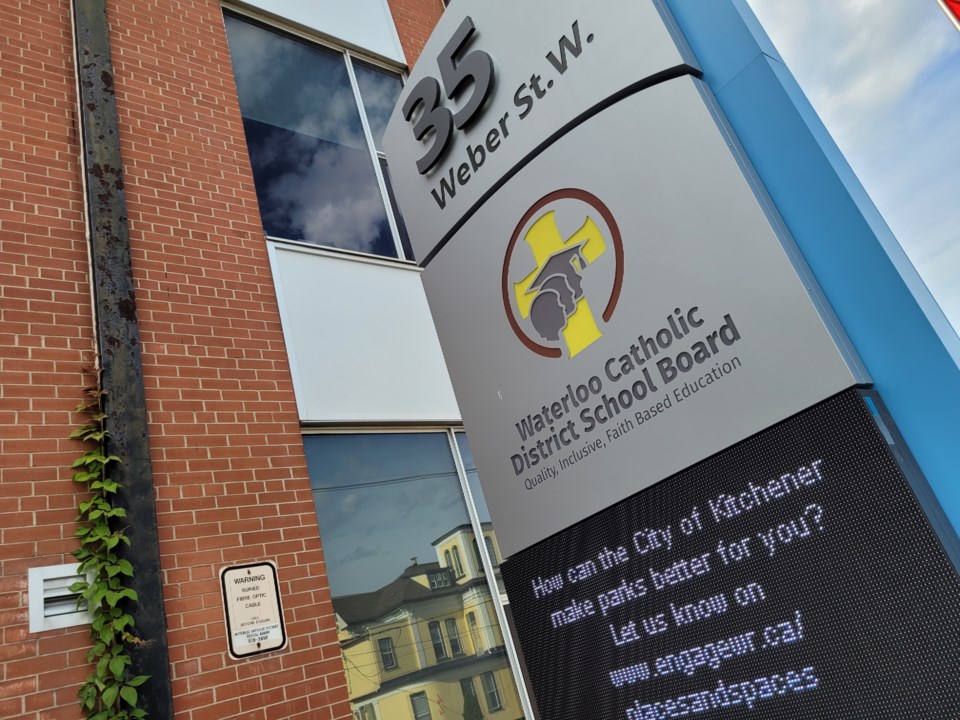A report presented to the Waterloo Catholic District School Board trustees this month showed a surplus of more than $7.9 million.
The surpluses were broken down across several spending categories, including $222,726 from Workplace Safety and Insurance Board (WSIB), $3,714,992 in operating/working funds, $1,624,516 in technology renewal, $150,000 in insurance, $961,688 in early learning resources, $93,905 in student support funds from unused grants, $715,385 in administrative capital and $458,098 in strategic planning implementation.
And while surpluses are nothing new to the board, educational spending has been scrutinized across the province in recent months.
Back in July, four trustees from the Brant Haldimand Norfolk Catholic District School Board spent $45,000 on a trip to Italy to purchase $100,000 worth of art for new schools in Brantford and Caledonia.
Education Minister Jill Dunlop called the use of public money "appalling" and the province has appointed a reviewer to look into the matter.
The Thames Valley District School Board has also come under fire after a $40,000 staff retreat that included a stay in the hotel at the Rogers Centre in Toronto.
The WCDSB hasn't been accused of any wrongdoing but it prompted CambridgeToday to question how and where these surpluses are allocated.
"The amounts we have in surplus, more familiarly known as reserves, are the result of years when our general revenues exceeded our expenses," Lema Salaymeh, senior manager of communications for the WCDSB, said.
"In general, we plan to have at least two per cent of operating revenues in reserves. This acts as a buffer for any unexpected costs, and is the minimum amount required by the province to be considered a board with a low financial risk."
Salaymeh said there are exceptions for certain surpluses.
The early learning resources are funds generated from the extended day program and are reinvested to renew play equipment, purchase materials for student learning and activities, and install storage structures as needed.
"The extended day program hasn't generated a surplus in a number of years and we plan to draw down this surplus in 2024-25 as we transition to a new licensed childcare model," she said.
"This new model will allow families to take advantage of the federal government’s childcare subsidies to reduce their childcare expenses."
The student support funds are part of labour agreements with certain employee groups and require approval from the group to be spent.
The administrative capital reserve is used for repair and maintenance of the Catholic Education Centre in downtown Kitchener and Facilities Centre and Warehouse in Waterloo.
"The province provides no funding to repair and maintain administrative facilities," Salaymeh said.
"The funds in this reserve were set aside to pay for major capital work and were generated from surpluses in our administrative funding envelope, accumulated over a number of years."
According to the report, "up to one per cent of operating revenues can be used at the discretion of the board of trustees without requiring ministerial consent," and "boards may use up to two per cent of operating revenues without ministerial consent during these uncertain times."
To read the full report visit wcdsb.ca.



